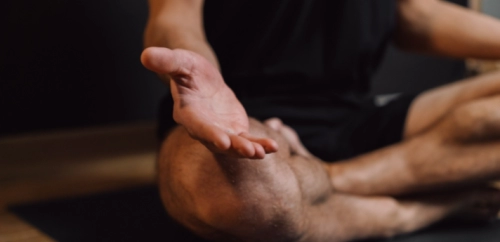How Can Adults Learn Mindfulness?

Mindfulness is gaining in popularity day by day. There are so many wonderful benefits you can take advantage of when incorporating mindfulness into your daily life. But sometimes, learning a new skill as an adult can be quite challenging.
There are several ways that adults can learn mindfulness. Not only by reading books about it and finding groups that practice via online forums, but also by taking courses, as many colleges and other institutions offer mindfulness classes. In the end, it all boils down to how much time you want to put into it.
So in this article, we're going to take a look at the benefits and some techniques you can use to instill a good mindfulness practice in your everyday lives.
Mindfulness: Why Is It Important For Adults?
Mindfulness is important for anybody. You can start learning mindfulness as a child, but as an adult, you are exposed to a lot of different challenges and stressors that mindfulness can help you overcome.
This is why many schools and colleges offer mindfulness courses and teachings to not only the students but the teachers as well. Mindfulness helps you learn how to focus and have better interactions with others. As an adult, you need that type of skill in all aspects of your life, whether that be professional or personal.
Not only does it build an understanding of others and help you with focus, but it can also help stimulate better communication and productivity and help relieve the effects of mental health issues like depression and anxiety. So for adults, having the skills and abilities to handle these situations can give them a more balanced and productive life that leads to improved mental, physical, and spiritual health.
Benefits of Mindfulness For Adults
Now that we've discussed why adults need to learn mindfulness, we can take a quick look at what benefits adults will get from implementing mindfulness in their daily lives. This will, in turn, help us answer how adults can learn mindfulness.
Here are some of the biggest benefits adults can take advantage of when it comes to mindfulness practices:
Reduces Bad Behaviors
With the rigors and stresses of everyday life comes the chance of suffering. Sometimes, when adults enter these situations, they turn to destructive behaviors to help them overcome and avoid these pains.
But by learning mindfulness as an adult, you cultivate skills that allow you to handle these emotional pains instead of stuffing them down and letting them build up until you can't control them any longer. This, in turn, will help adults stray away from those destructive behaviors and remain in a mentally balanced and physically healthy frame of mind.
Decreases Reactivity
One of the biggest pillars of mindfulness is that you learn that emotions, no matter what type, are important. You have to be able to feel them, acknowledge them, and then let them go. This, in turn, helps breed a less reactive way of life.
This can help control stress and anxiety and the way you handle them. Taking in the situation and experiencing it fully allows your brain and your energy to realign and stay present, which will reduce negative reactions to stressful situations.
Balance
The trick to living a happy and healthy life is to remain in balance with your energy and the world around you. The only way to do this is by acknowledging the positive emotions and joys you experience throughout the day.
But if you're constantly looking into the past or the future, you will never be able to do this. Adults who institute mindfulness practices gain balance in their everyday life and this allows them to stay in the moment at all times and deal with the rigors of life more productively.
Enhanced Memory & Brain Health
Studies have shown that any form of mindfulness, whether it be meditation or journaling, affects certain regions of the brain specifically in charge of memory and emotion regulation. Because of this, instituting mindfulness practices into your daily life can have a direct effect on age-related declines in your cognitive skills.
In other words, mindfulness can help you improve your memory and brain health so that there are fewer effects of aging shown, and you have a more clear path to continued learning.
Build Confidence & Self-Esteem
Adults are bombarded every day with things that create anxiety and stress. Many of these have to do with interpersonal connections during their day. Because of this, having confidence and high self-esteem can be quite beneficial.
By utilizing mindfulness practices, adults can build these skills and improve not only their ability to learn new things, but also their ability to interact with the people surrounding them.
How Can Adults Learn Mindfulness: Mindfulness Techniques For Adults
Of course, you can take courses and read books, which is the key way to understanding the principles behind mindfulness. But, to help you, we thought we'd give you a few exercises you could institute in your daily life that can help any adult learn mindfulness and build a better, more balanced life.
Here are a few exercises that are simple and effective when it comes to incorporating mindfulness into your everyday life:
4-7-8 Breath
This is a technique that is borrowed from yoga. The 4-7-8 breath technique is also known as pranayama breath. This technique is meant to calm your nervous system when you are in a moment of stress. You're going to start by sitting or lying down (if possible), then take the tip of your tongue and place it on the roof of your mouth behind your teeth. Remove all air from your lungs with a deep breath.
Once you've done this, you're going to breathe slowly through your nose and count to four, hold that breath for a count of seven, and then forcefully exhale for a count of eight. Try to do this about four different times, and this should calm your nerves enough so that you can mindfully address the situation.
Chime Calming
You may have seen or heard meditation or yoga sessions that begin with a chime or bell. Sometimes this is even done with a singing bowl. These can be utilized as triggers to tell your mind it's time to calm itself and relax. You will, of course, have to purchase a bell or a chime or even a singing bowl, but this can be a great way to signal to your brain that it's time for your mindfulness practices.
Mindful Pausing
One of the ways to really stay present is to take a pause in the moment. So this technique is utilized when you begin to feel painful or what people may consider negative emotions. Once you have become aware that you're having these feelings, you want to observe that feeling and do so without judging yourself or the feeling.
Take deep breaths and focus on the sensations around you. Utilizing your five senses allows you to step away from this situation and pause, allowing your brain to rationally look at it and react productively.
Transition Moments
Our lives are filled with transition moments that take us from one situation to another. Some of these can be very uncomfortable for some. But by taking the time to recognize these transition moments and concentrating on your five senses as these moments occur, you can stay mindful throughout the day.
For instance, walking into work may be one of these transition moments that causes you stress. By taking the time to really stay present and experience the world around you and within, you can relieve the stresses and anxieties that occur during these transition moments.
Final Thoughts
We've looked at several techniques that people can utilize throughout the day to install mindfulness practices into their routines. When it comes down to it, though, the best way for an adult to learn mindfulness is to either find a course or really dive deep into educating themselves about the practice.
This can be done via online forums or books, but by taking the time to educate yourself, you can find a way to a wellness journey that leaves you living a happier and healthier life.
















